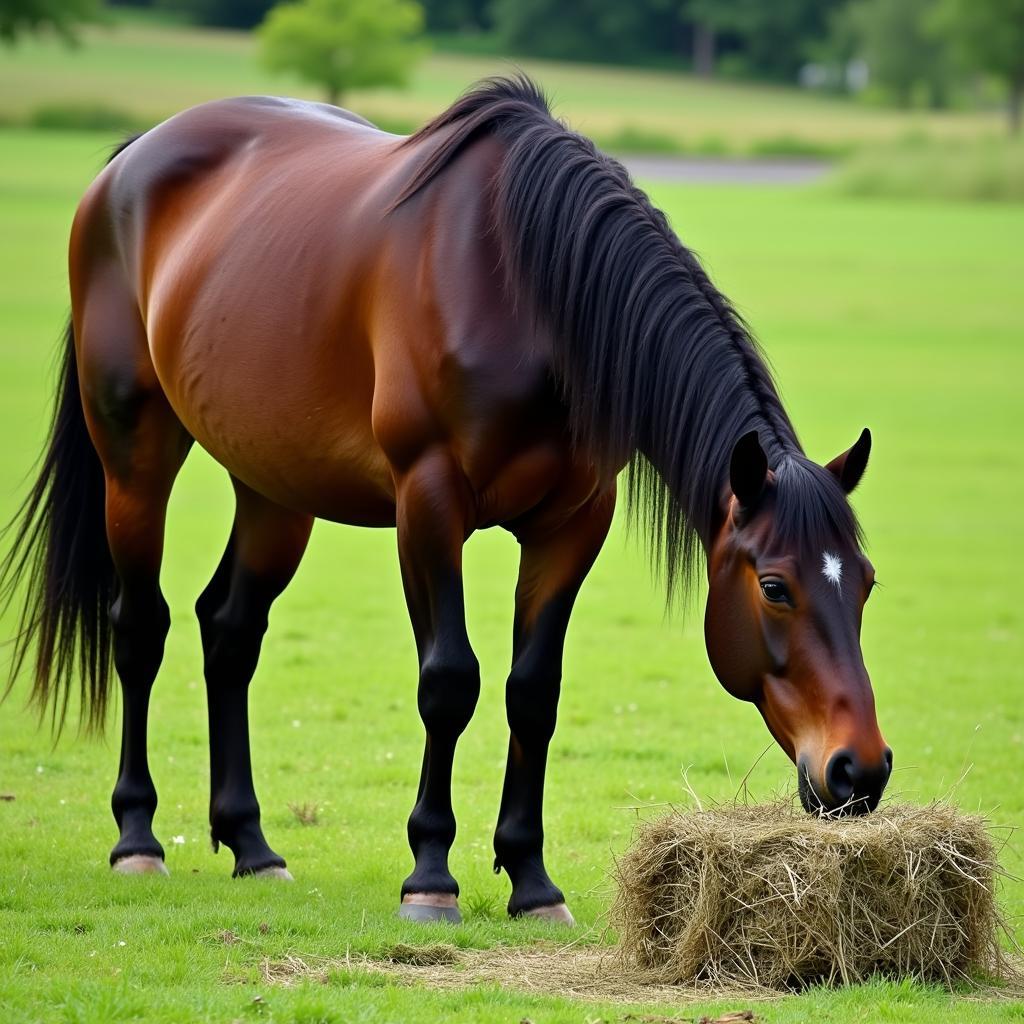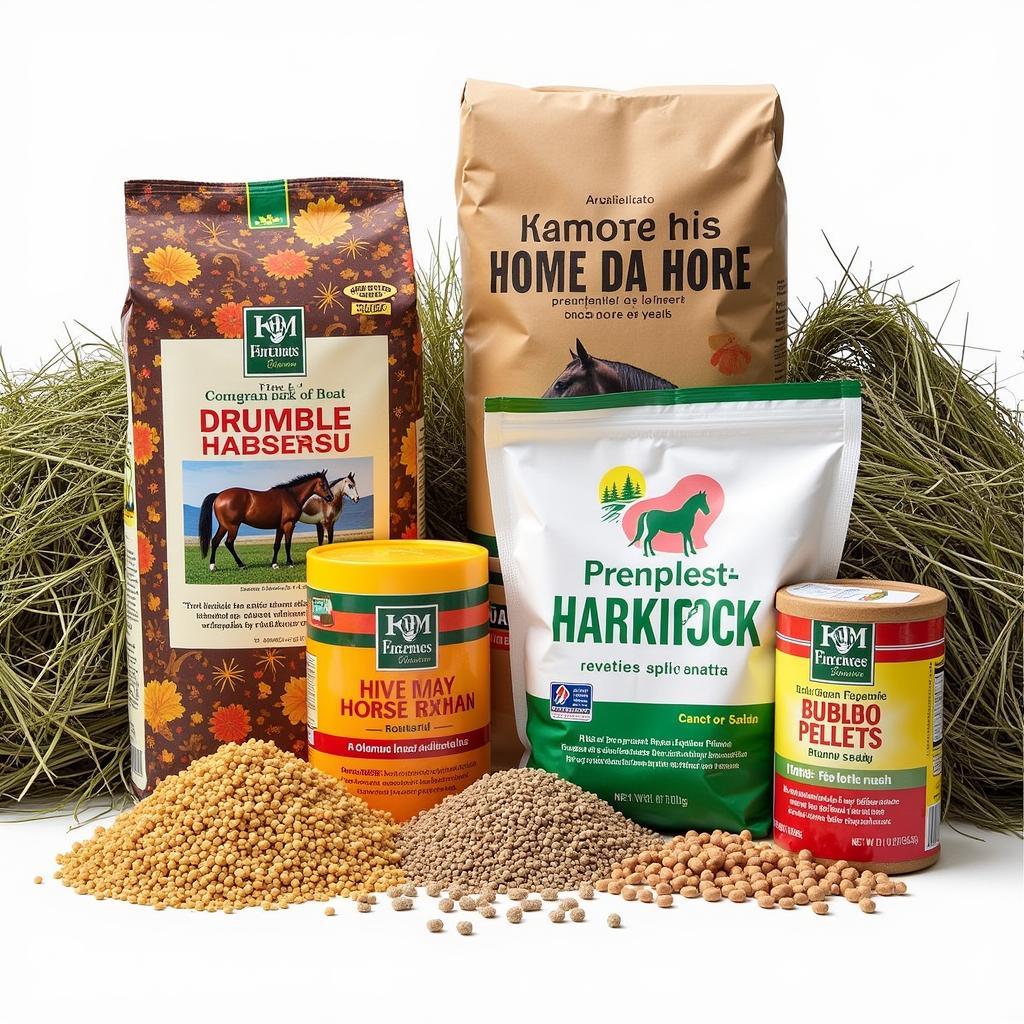The age-old question: are horses omnivores? The simple answer is no, horses are herbivores, despite what some might think. This article delves deep into the horse’s digestive system, dietary needs, and common misconceptions about their eating habits to clarify why horses are classified as herbivores and not omnivores.
Debunking the Myth: Why Horses Aren’t Omnivores
Horses possess a digestive system specifically designed for plant-based diets. Their long intestines and specialized gut bacteria allow them to efficiently break down cellulose and other complex carbohydrates found in plants. Unlike omnivores, which have shorter digestive tracts and different enzyme profiles, horses lack the necessary biological mechanisms to digest and utilize nutrients from animal sources effectively.
A Horse’s Digestive System: Built for Plants
The horse’s digestive system is a marvel of evolutionary engineering perfectly adapted to processing plant matter. From their powerful teeth designed for grinding tough grasses and hay to their expansive cecum teeming with cellulose-fermenting bacteria, every part of their digestive tract plays a crucial role in extracting energy and nutrients from a fibrous diet. This highly specialized system reinforces the fact that horses are herbivores, not omnivores.
The core of the horse’s digestive power lies in its hindgut, particularly the cecum. This large, pouch-like organ acts as a fermentation chamber where billions of beneficial bacteria work tirelessly to break down cellulose, the primary carbohydrate in plants. This process releases valuable nutrients that the horse can then absorb and utilize.
The Importance of Fiber in a Horse’s Diet
Fiber forms the cornerstone of a healthy horse diet. It promotes healthy gut function, helps regulate digestion, and provides a sustained source of energy. Without sufficient fiber intake, horses can develop a range of digestive issues, including colic, a potentially life-threatening condition.
 Horse Eating Hay in a Field
Horse Eating Hay in a Field
While horses might occasionally nibble on insects or other small creatures out of curiosity or mineral seeking, these instances are incidental and do not indicate an omnivorous diet. Their digestive system is simply not equipped to handle significant quantities of animal protein.
What Do Horses Eat? A Herbivore’s Menu
A healthy horse diet typically consists of forage like hay and pasture grasses, supplemented with grains and concentrates as needed to meet their energy requirements. Providing a balanced, fiber-rich diet is essential for maintaining a horse’s health and well-being.
Understanding Nutritional Needs
Just like humans, horses need a balanced diet to thrive. This balance includes the right proportions of carbohydrates, proteins, fats, vitamins, and minerals, all sourced from plant-based feeds.
 Variety of Horse Feed
Variety of Horse Feed
So, while you might see your horse nibble on a fly or two, remember that their primary food source and the foundation of their diet is plant matter. This reinforces their classification as herbivores, perfectly adapted to thriving on a diet rich in fiber and other essential nutrients derived from plants.
Conclusion: Horses Are Herbivores, Period.
Horses are unequivocally herbivores. Their digestive system, dietary needs, and natural behaviors all point to their reliance on plants as their primary food source. Understanding this fundamental aspect of equine biology is essential for providing proper care and ensuring the long-term health and well-being of these magnificent animals.
FAQ
- Can horses eat meat? No, their digestive system is not designed to process meat efficiently.
- What is the main component of a horse’s diet? Fiber, primarily from hay and pasture grasses.
- What is colic? A painful digestive disorder in horses, often caused by dietary imbalances.
- Why do horses sometimes eat insects? Possibly out of curiosity or to supplement mineral intake.
- What are the signs of a healthy horse? A shiny coat, bright eyes, good appetite, and regular bowel movements.
- How much hay should a horse eat per day? This depends on the horse’s size, activity level, and the quality of the hay. Consult a veterinarian for specific recommendations.
- Can horses eat fruits and vegetables? Yes, in moderation as treats.
Are there any other questions? Check out hungry horse news grizzly bear charles for more intriguing information.
You can also find more information about horse care on our website.
When in doubt about your horse’s diet, consult a qualified equine veterinarian or nutritionist. They can help you develop a feeding plan that meets your horse’s individual needs and keeps them healthy and happy.
When you need support, please contact us by phone: 0772127271, email: [email protected] or visit our address: QGM2+WX2, Vị Trung, Vị Thuỷ, Hậu Giang, Việt Nam. We have a 24/7 customer care team.